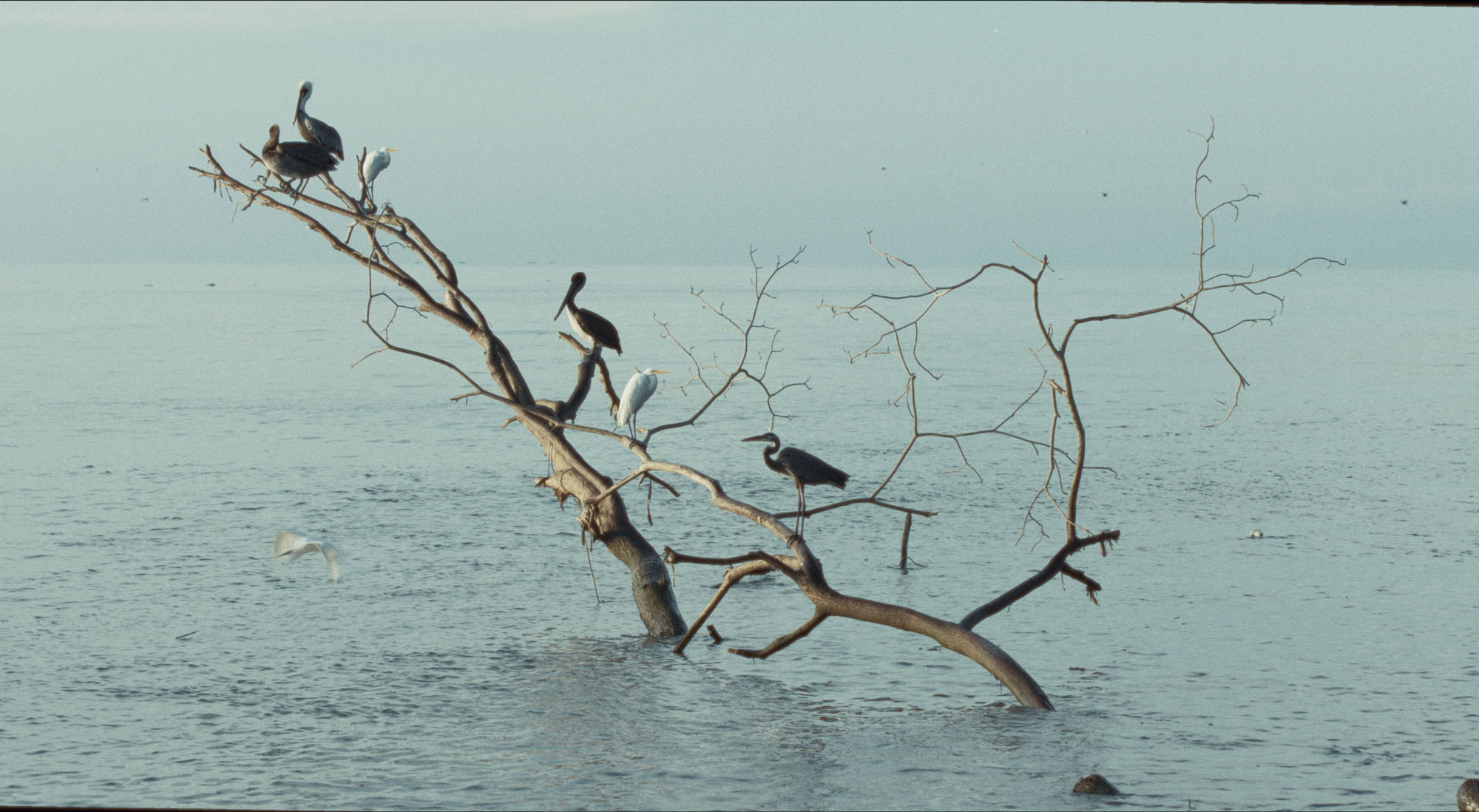
Synopsis
Night, a floating journey through a jungle, glimpses of people that walk away. The sound of water in the darkness, a fisherwoman who lifts in constant cadence a fishing net on top of a boat. Darkness wraps all movement, and the fish collected are scattered by glimpses of light. From physical labour to the rituals involved in religious festivities, Moretones (Bruises) takes us through the diverse geographical and spiritual landscapes of the Costa Chica, a region marked by the imprints of climate change, colonialism and the echoes of slavery and displacement on the Afro-descendants who live there, present in contemporary forms of neglect due to structural racism and lack of opportunities.
Animal spirits, known as tonos, mirror daily life. Upon being born, a person acquires a close spiritual link to an animal that wanders in the wild, a link that lasts throughout the lives of both creatures. Once a guardian spirit, tonos have become a risk in the lives of people, due to the vast exploitation of land and climate change that shrinks the habitats of wild animals, and tonos.
Within this cosmogony, we follow four protagonists that have a unique relationship with their animal spirit and surroundings.
There is Juli, a fisherwoman, who has a strong connection to the ocean and prefers being on the boat than at land; Don Chico, a healer that embodies his tono at night to take care of other people’s tonos; Doña Ester, a 97 year-old midwife that roams at night in her animal form; and Santos, a farmer whose tono is a crocodile searching for refuge.
Delving further and further into the sensuality of the spiritual realm, the relationship between the tangible and the immaterial becomes more evident throughout the film.



